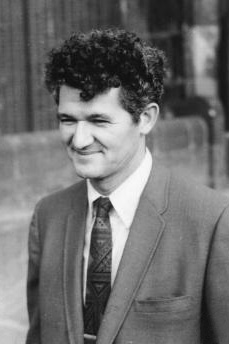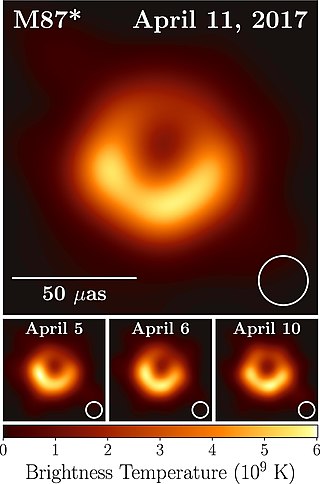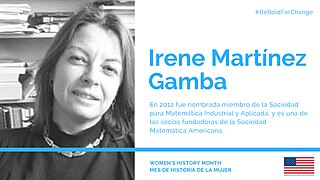Related Research Articles

The New York University Tandon School of Engineering is the engineering and applied sciences school of New York University. Tandon is the second oldest private engineering and technology school in the United States.

Peter David Lax is a Hungarian-born American mathematician and Abel Prize laureate working in the areas of pure and applied mathematics.

Cathleen Synge Morawetz was a Canadian mathematician who spent much of her career in the United States. Morawetz's research was mainly in the study of the partial differential equations governing fluid flow, particularly those of mixed type occurring in transonic flow. She was professor emerita at the Courant Institute of Mathematical Sciences at the New York University, where she had also served as director from 1984 to 1988. She was president of the American Mathematical Society from 1995 to 1996. She was awarded the National Medal of Science in 1998.

The Courant Institute of Mathematical Sciences is the mathematics research school of New York University (NYU). Founded in 1935, it is named after Richard Courant, one of the founders of the Courant Institute and also a mathematics professor at New York University from 1936 to 1972, and serves as a center for research and advanced training in computer science and mathematics. It is located on Gould Plaza next to the Stern School of Business and the economics department of the College of Arts and Science.
Joan Sylvia Lyttle Birman is an American mathematician, specializing in low-dimensional topology. She has made contributions to the study of knots, 3-manifolds, mapping class groups of surfaces, geometric group theory, contact structures and dynamical systems. Birman is research professor emerita at Barnard College, Columbia University, where she has been since 1973.

Margaret H. Wright is an American computer scientist and mathematician. She is a Silver Professor of Computer Science and former Chair of the Computer Science department at Courant Institute of Mathematical Sciences, New York University, with research interests in optimization, linear algebra, and scientific computing. She was elected to the National Academy of Engineering in 1997 for development of numerical optimization algorithms and for leadership in the applied mathematics community. She was elected to the National Academy of Sciences in 2005. She was the first woman to serve as President of the Society for Industrial and Applied Mathematics.

Feryal Özel is a Turkish-American astrophysicist born in Istanbul, Turkey, specializing in the physics of compact objects and high energy astrophysical phenomena. As of 2022, Özel is the Department Chair and a professor at the Georgia Institute of Technology School of Physics in Atlanta. She was previously a professor at the University of Arizona in Tucson, in the Astronomy Department and Steward Observatory.

Katepalli Raju Sreenivasan is an aerospace scientist, fluid dynamicist, and applied physicist whose research includes physics and applied mathematics. He studies turbulence, nonlinear and statistical physics, astrophysical fluid mechanics, and cryogenic helium. He was the dean of engineering and executive vice provost for science and technology of New York University. Sreenivasan is also the Eugene Kleiner Professor for Innovation in Mechanical Engineering at New York University Tandon School of Engineering and a professor of physics and mathematics professor at the New York University Graduate School of Arts and Science and Courant Institute of Mathematical Sciences.

Jennifer Tour Chayes is dean of the college of computing, data science, and society at the University of California, Berkeley. Before joining Berkeley, she was a technical fellow and managing director of Microsoft Research New England in Cambridge, Massachusetts, which she founded in 2008, and Microsoft Research New York City, which she founded in 2012.
Nancy Jane Kopell is an American mathematician and professor at Boston University. She is co-director of the Center for Computational Neuroscience and Neural Technology (CompNet). She organized and directs the Cognitive Rhythms Collaborative (CRC). Kopell received her B.A. from Cornell University in 1963 and her Ph.D. from Berkeley in 1967. She held visiting positions at the Centre National de la Recherche Scientifique in France (1970), MIT, and the California Institute of Technology (1976).
Leslie Frederick Greengard is an American mathematician, physicist and computer scientist. He is co-inventor with Vladimir Rokhlin Jr. of the fast multipole method (FMM) in 1987, recognized as one of the top-ten algorithms of the 20th century.

Jean Ellen Taylor is an American mathematician who is a professor emerita at Rutgers University and visiting faculty at the Courant Institute of Mathematical Sciences of New York University.
Marsha J. Berger is an American computer scientist. Her areas of research include numerical analysis, computational fluid dynamics, and high-performance parallel computing. She is a Silver Professor (emeritus) of Computer Science and Mathematics in the Courant Institute of Mathematical Sciences of New York University. She is Group Leader of Modeling and Simulation in the Center for Computational Mathematics at the Flatiron Institute.

Ioana Dumitriu is a Romanian-American mathematician who works as a professor of mathematics at the University of California, San Diego. Her research interests include the theory of random matrices, numerical analysis, scientific computing, and game theory.

Irene Martínez Gamba is an Argentine–American mathematician. She works as a professor of mathematics at the University of Texas at Austin, where she holds the W.A. Tex Moncrief, Jr. Chair in Computational Engineering and Sciences and is head of the Applied Mathematics Group in the Oden Institute for Computational Engineering and Sciences.

Lai-Sang Lily Young is a Hong Kong-born American mathematician who holds the Henry & Lucy Moses Professorship of Science and is a professor of mathematics and neural science at the Courant Institute of Mathematical Sciences of New York University. Her research interests include dynamical systems, ergodic theory, chaos theory, probability theory, statistical mechanics, and neuroscience. She is particularly known for introducing the method of Markov returns in 1998, which she used to prove exponential correlation delay in Sinai billiards and other hyperbolic dynamical systems.
Lisa J. Fauci is an American mathematician who applies computational fluid dynamics to biological processes such as sperm motility and phytoplankton dynamics. More generally, her research interests include numerical analysis, scientific computing, and mathematical biology. She is the Pendergraft Nola Lee Haynes Professor of Mathematics at Tulane University, and was president of the Society for Industrial and Applied Mathematics (2019–2020).
Leslie Hogben is an American mathematician specializing in graph theory and linear algebra, and known for her mentorship of graduate students in mathematics. She is a professor of mathematics at Iowa State University, where she held the Dio Lewis Holl Chair in Applied Mathematics 2012-2020; she is also professor of electrical and computer engineering at Iowa State, associate dean for graduate studies and faculty development of the College of Liberal Arts and Sciences at Iowa State, and associate director for diversity at the American Institute of Mathematics.
Tamar Flash is an Israeli neuroscientist and control theorist whose research concerns biological motor control, including the motion of the human arm, the effects of neurological damage on motion, and the use of robotics to study biological motion. She holds the Dr. Hymie Moross Professorial Chair in the Faculty of Mathematics and Computer Science at the Weizmann Institute of Science.
References
- 1 2 3 4 5 Curriculum vitae: Tamar Schlick (PDF), October 8, 2012, retrieved 2015-09-09.
- ↑ Tamar Schlick at the Mathematics Genealogy Project
- ↑ SIAM Fellows: Class of 2012 , retrieved 2015-09-09.